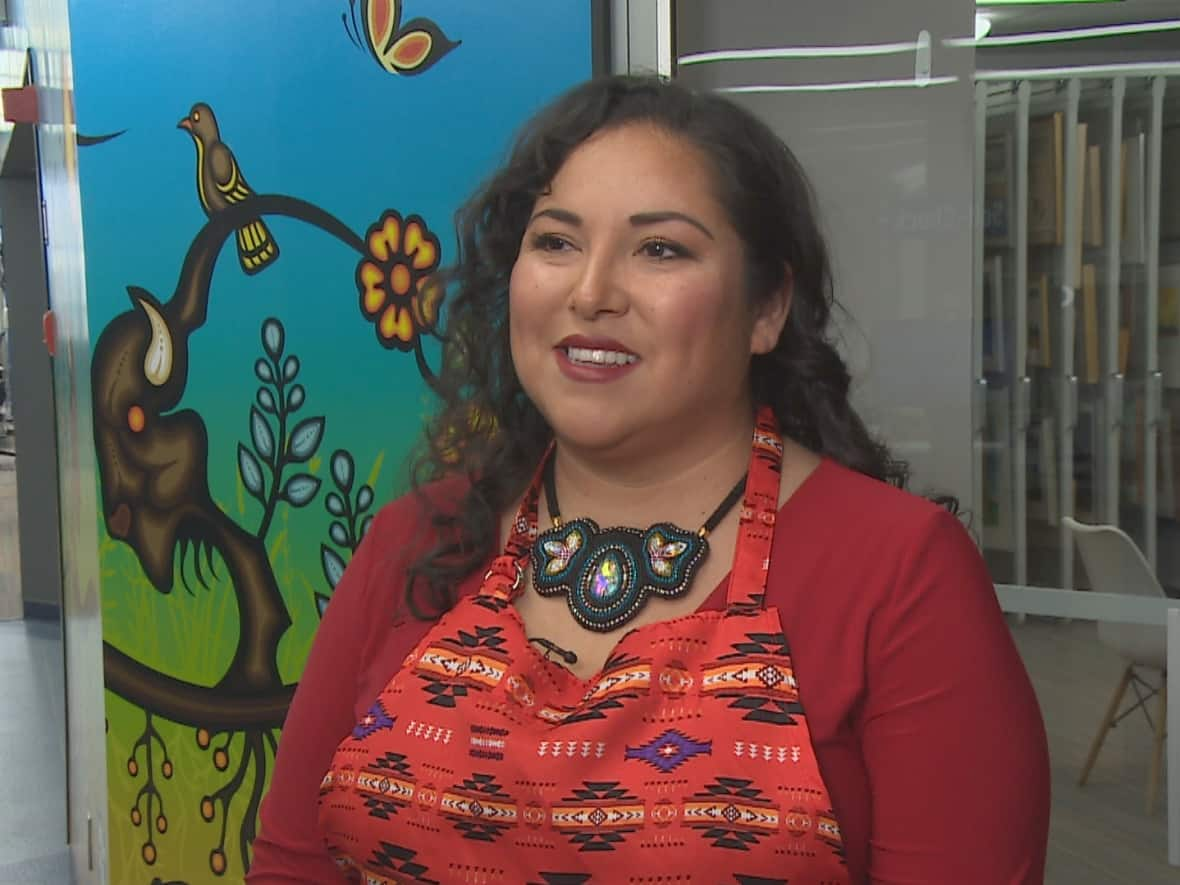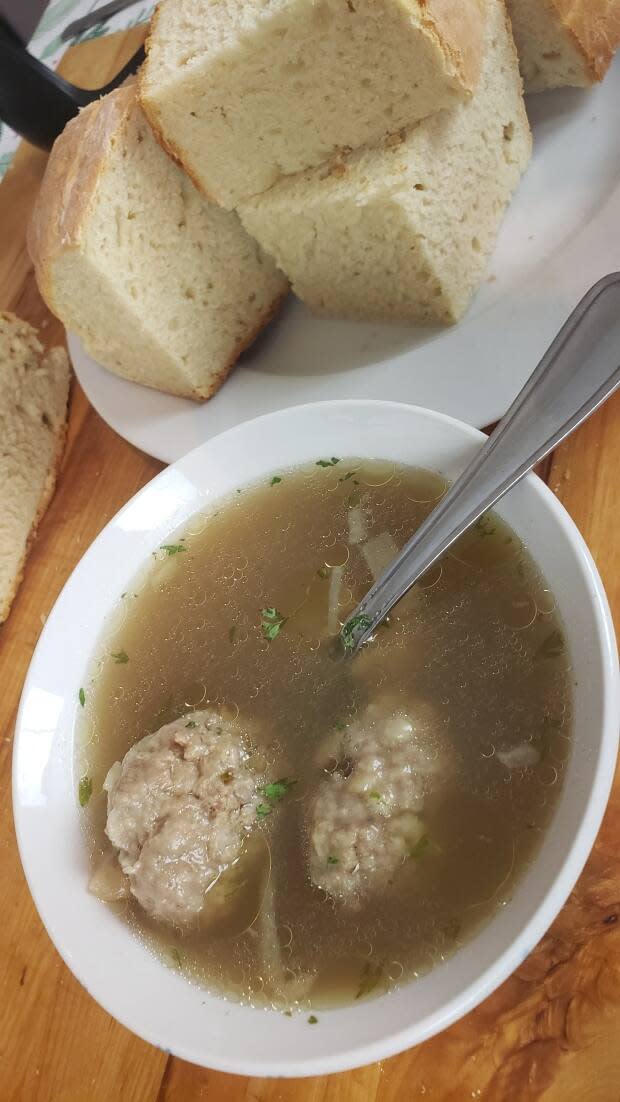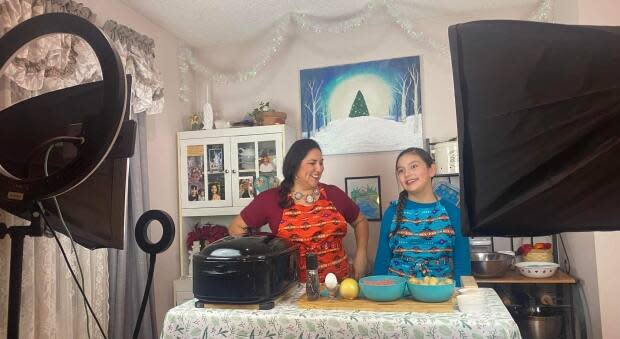Great Canadian Baking Show contestant hosts cooking classes as part of Decolonize YQR series

A Cree and Nakoda baker is using her traditional food knowledge as a way to bring Indigenous people and non-Indigenous people together in Regina.
Jodi Robson, from Okanese First Nation in Saskatchewan, was featured on season 3 of CBC's Great Canadian Baking Show.
Working with Reconciliation YQR and the Regina Public Library, Robson has been doing virtual cooking classes over Zoom as part of an online series of events called Decolonize YQR.
"[Decolonize YQR] is an opportunity to build a bridge between the First Nations people in the community and non-First Nations people," Robson said.
"There's a lot of misconceptions and preconceived notions that frankly aren't true. I would like to see those erased and knowledge be shared and understanding be built that doesn't exist currently."
Tuesday's event was a how-to on boulette soup, a traditional Métis dish.
Robson said since it's pronounced "bullet" soup, people often believe the name has something to do with hunting, as the meatballs look like buckshot bullets, but boulette is simply the Michif word for meatball.
Robson said her boulette soup is as close to traditional as possible

"It's literally just meatballs, sometimes some potatoes, a little bit of flour mixed in to make kind of a thin broth," she said.
"I don't like to spice it up because that's not the comfort food I recognize when I have boulette soup."
She said she grew up with boulette soup and her grandmother would have guests over on New Year's Day to enjoy some warm soup during the chilly weather.
"Boulette soup is an opportunity to reconnect during the hard winter months and visit and welcome the new year with a good feeling," she said.

An ingredient list was sent out prior to the event so participants could follow along cooking with Robson.
During the event, Robson shared stories about the soup and questions were encouraged.
"I think these types of events are important because they provide an opportunity to ask questions in a comfortable setting — we are not going to be judged, no question is stupid, no one is going to be upset," she said.
"Even if it's something that's very uncomfortable about Indigenous people, it's fine. I'll answer you as best as I can."
Robson said these sorts of events help build a community as well.
"There's a lot of people who join every single class so it feels like you're building a family online," she said, adding that many non-Indigenous people attend her classes.
Wide range of topics
Courtney Bates-Hardey, the events co-ordinator at the Regina Public Library, said everybody is welcome to join.
"It's a way for people to really participate in reconciliation and learn more about what they can do," she said.
Bates-Hardey said the events are different every month — there are food-based events like Robson's as well as history and culture events.
Next month, Elder Harry Francis will be speaking on what it was like to grow up on the reserves in the '50s and '60s, and what his work entails as a leader and healer.


